In calling an unnecessary poll, PM Theresa May displayed both hubris and distance from reality
Indian Express, 10 June 2017
Getting the timing of an election right can be hazardous for politicians at the best of times. The June 8 snap general election called by Prime Minister Theresa May will, however, enter the annals of contemporary political history in the British Isles as a supreme example of delusional politics.
A sitting prime minister with a comfortable working majority in the House of Commons deciding to call a general election prematurely — three years before this is due — is in and of itself unprecedented. The reason cited, that it would provide her greater bargaining leverage in the Brexit negotiations, due to commence in ten days — is equally remarkable. Does the extent of the majority a leader enjoys in parliament influence negotiating strength? If that were to be the case, then the fact that she has lost a working majority and produced a hung parliament makes this catastrophic.
This was not the first example of such delusional politics though. The previous Prime Minister David Cameron’s decision to seek a referendum on Brexit was, in retrospect, both unnecessary and counterproductive. He paid for it with his political career. Theresa May, who followed him as prime minister, should have been content to accept the Brexit verdict and make the best of a difficult situation. Instead, she embarked on a major political gamble and called a snap general election, after having specifically said that she would not do so. The comfortable Tory lead in opinion polls encouraged her. An opposition Labour Party, in apparent disarray with a leader from its hard-left wing, Jeremy Corbyn, appeared to her as an additional reason. The opportunist in her thought that this was a safe gamble.
May tried to set the narrative in terms of Brexit — but two terrorist attacks, within a span of twelve days, and her own absence from the election campaign added to her problems. The fact that she had cut the budget for policing and the size of the force by twenty thousand during her six years as home secretary did not help. The abiding impression by polling day was that she had paid less attention to security issues during her prime ministership of one year — this became an issue in the electoral campaign.
Ordinary citizens do not like to be subjected to elections repeatedly. Apart from disrupting their daily lives, repeated elections compel them to make choices they are not comfortable with. This perhaps explains the loss of seats by the Scottish Nationalist Party (SNP) from its near-total dominance in the 2015 election. The only positive result that might emerge from an otherwise counterproductive general election now is that the demand for a second referendum for Scottish independence would be deferred. Should this turn out to be so, this untended bonus will one of the limited positive results of an unfortunate election.
Having piloted the Conservative Party from a comfortable working majority in the House of Commons to a hung parliament will, at the very least, result in some demands for May to step down, even as the Conservatives emerge as the single largest party. Even if she does hang onto power, as is now accepted, it may not be for long.
A member of the SNP, Humza Yousaf, went to the extent of describing May as “the Loch Ness Monster”: “Theresa May’s like the Loch Ness Monster, people believe she exists but nobody’s ever seen her.” Her personal style apart, the basic faultlines of having an inward-looking anti-immigration policy and running a lacklustre campaign became a political liability. Her flip-flops on issues such as a budgetary cap on social care for elderly pensioners, dubbed the “dementia tax”, added to perceptions of her being an uncaring leader.
The fact that the United Kingdom has continued to sell arms to Saudi Arabia — reportedly worth 3.5 billion pounds in the last few years alone — also did not resonate well with the younger, liberal sections of the electorate. A cosy relationship with the source of Wahabi Salafism, and the use of these arms in Yemen, where the humanitarian crisis is worsening, produced some disenchantment within younger voters.
The two terrorist attacks in the last fortnight were bad enough in terms of timing — the fact that some of the terrorists involved in the last two attacks had been on the radar screen of the UK’s security agencies added to May’s woes.
The suggestion that budgetary cuts introduced by her compounded the problem succeeded in changing the narrative away from Brexit, to include issues of domestic governance, security, failing health services and the ever-pressing issues of employment and immigration, which added to the disenchantment against her personally. Corbyn, on the other hand, ran a surprisingly robust campaign. His emphasis on the need for greater public spending on education and healthcare succeeded in changing his image — he came through as a caring and warm human being.
Instead of providing additional strength for the Brexit negotiations, the June 8 election reflects hubris and the chaos of a hung house — with the additional danger of another election within the next year or so. The British electorate has demonstrated that Brexit is not the only issue on its mind. Instead of a “hard Brexit”, the negotiations, which commence soon, will have to factor in the uncertainty introduced by these results.
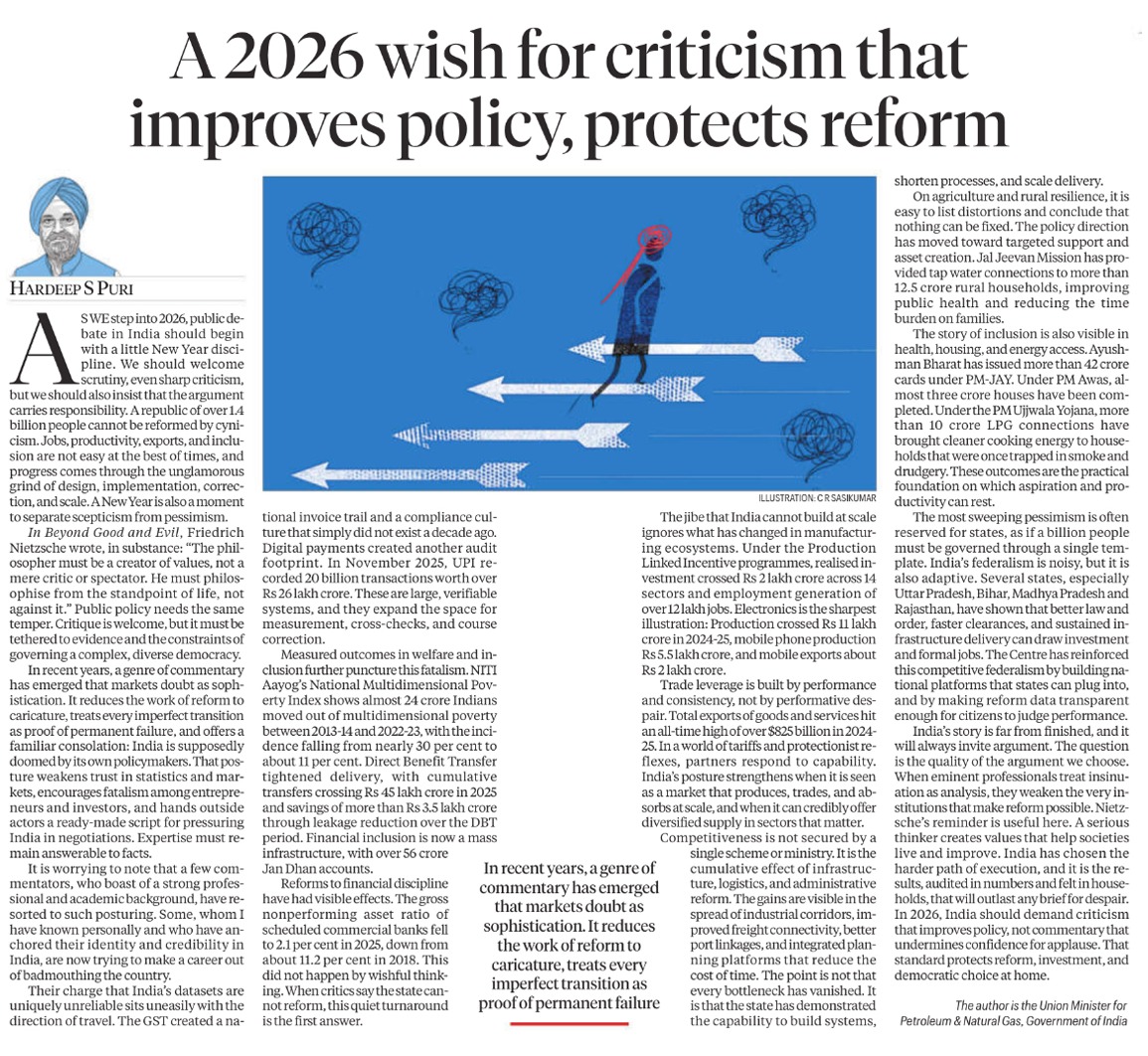
Our democracy benefits by criticism, but not by motivated fatalism by some “experts”, who seem more guided by their politics r...
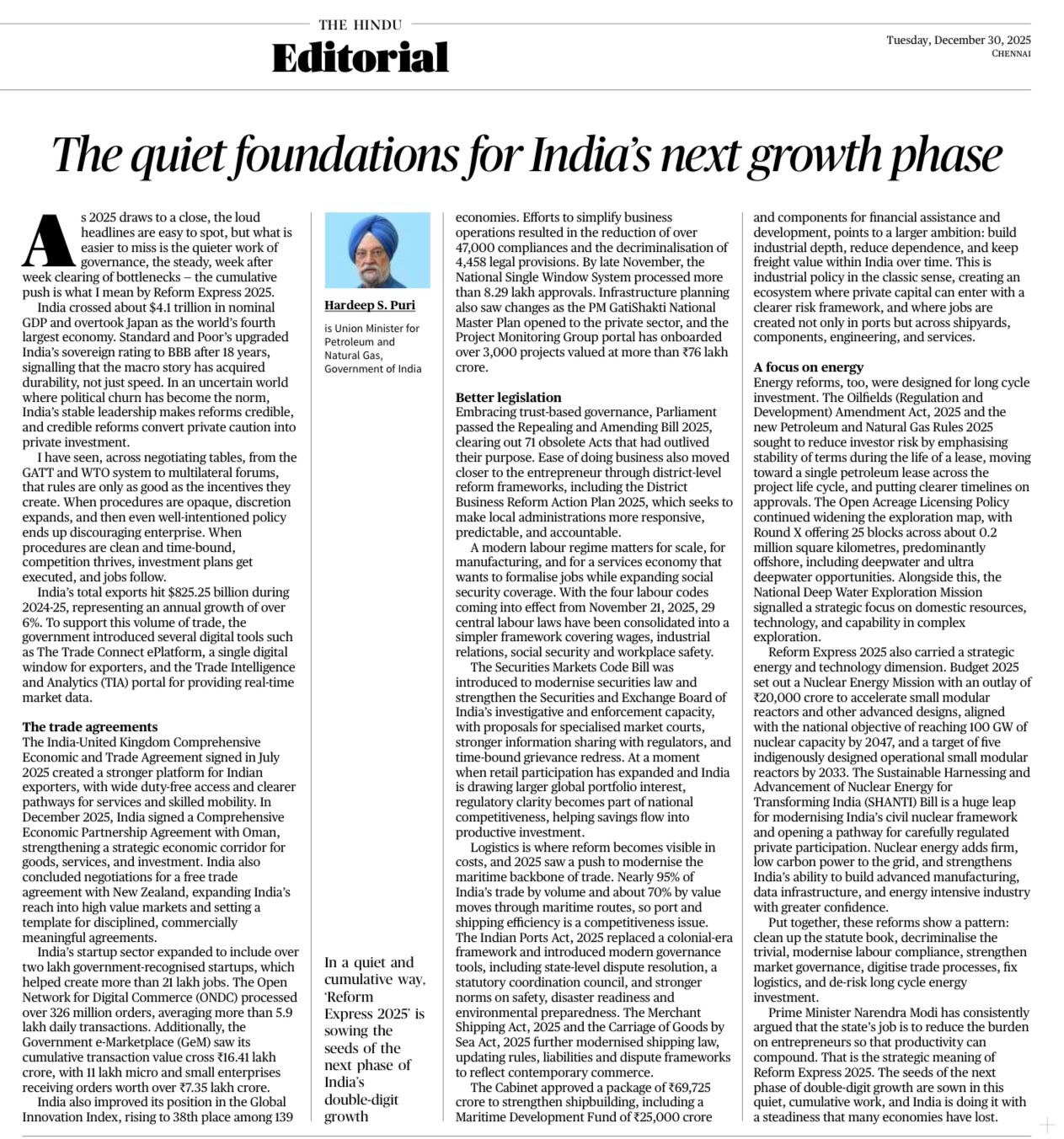
The quieter work of governance, the steady, week after week clearing of bottlenecks - this cumulative push is what I mean by Refo...
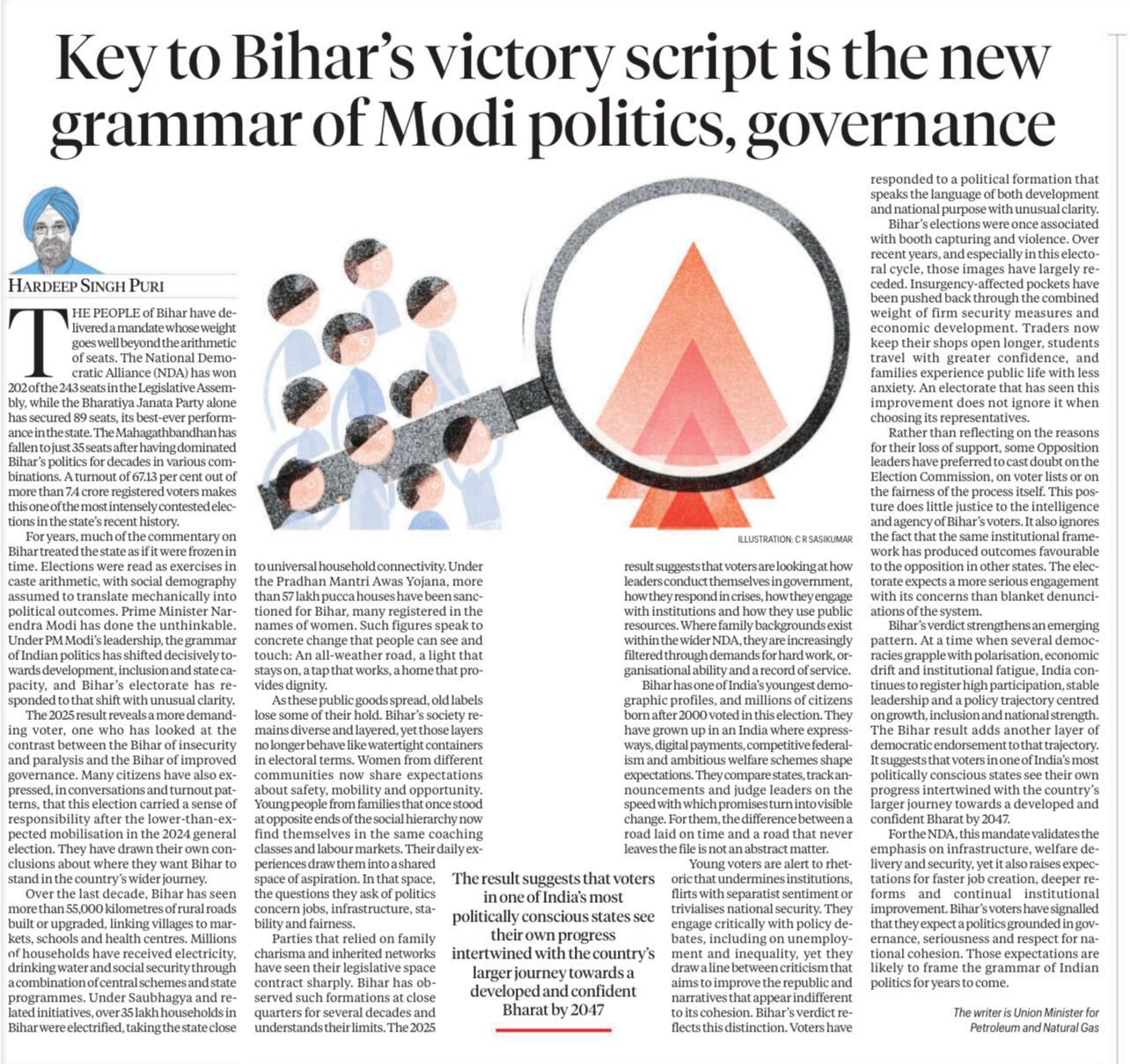
PM Sh Narendra Modi Ji has done the unthinkable in Bihar and it will change the grammar and lexicon of Indian politics for the ti...
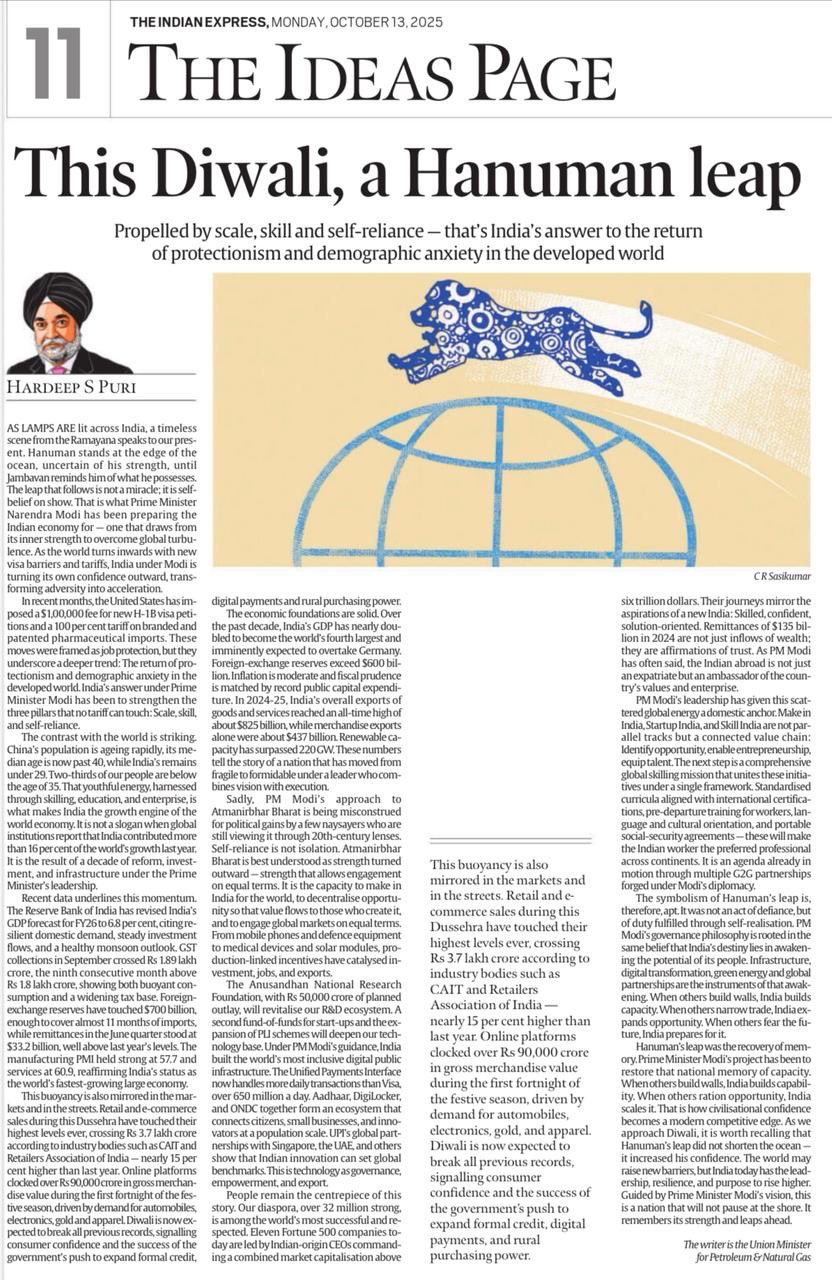
As the world passes through a period of geopolitical turmoil and uncertainty, India, under the visionary & decisive leadership of ...
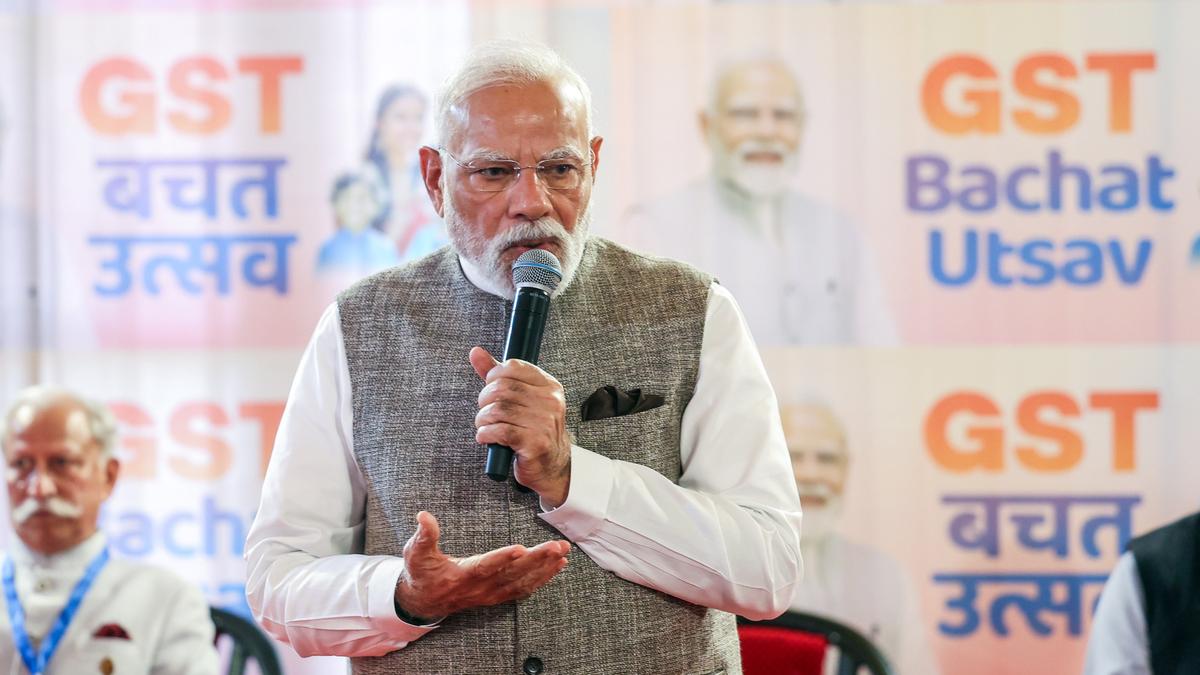
The Prime Minister’s professionalism and work ethic are what make the difference on the ground Praise has been showered on Pr...
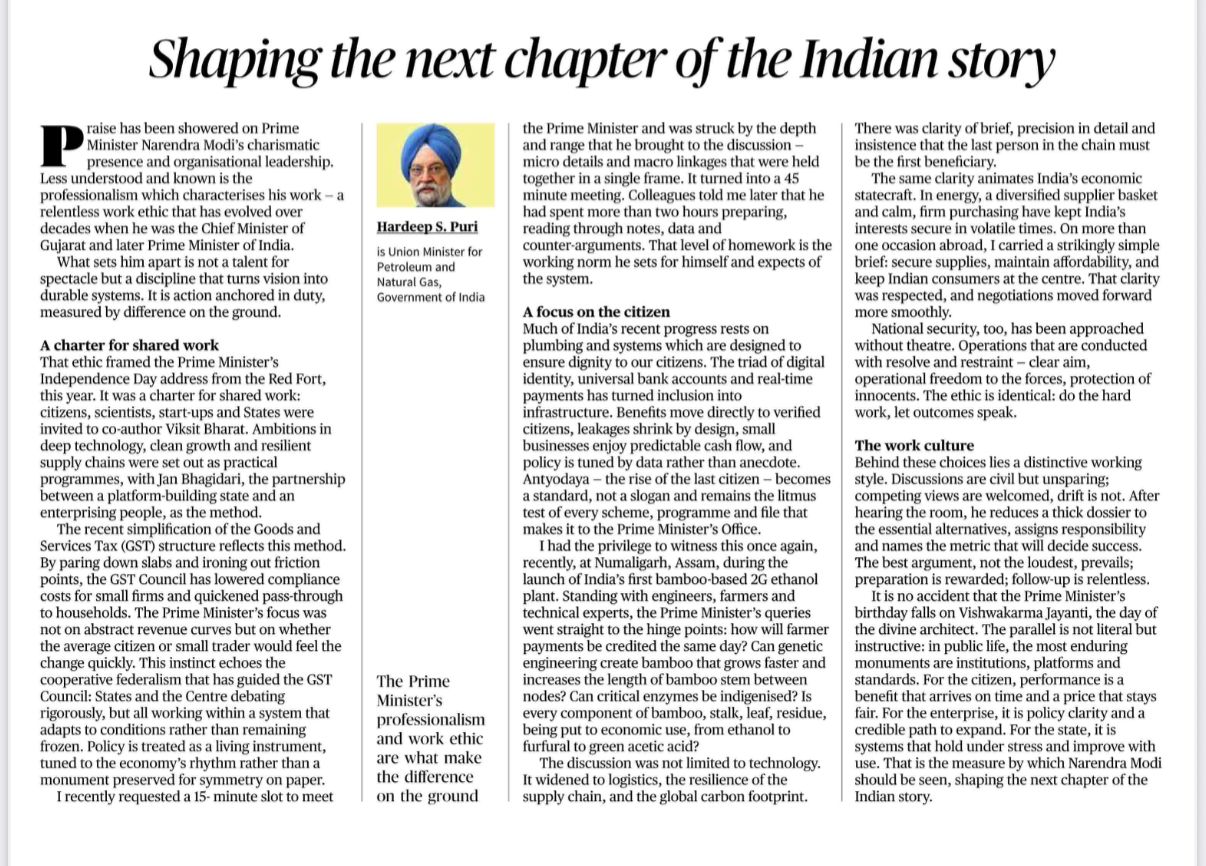
Shaping the next chapter of the Indian story!...
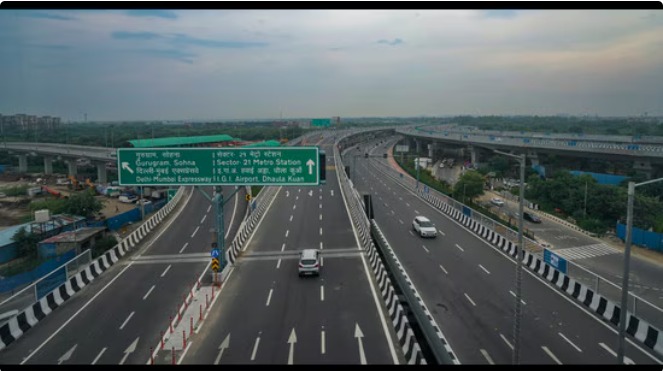
Indian cities are again on that path to being modern yet humane, ambitious yet inclusive, global in outlook yet rooted in our valu...

India’s fact-rich story of resilience, growth and energy security will silence the ‘global doubters’ who call it a ‘dead e...
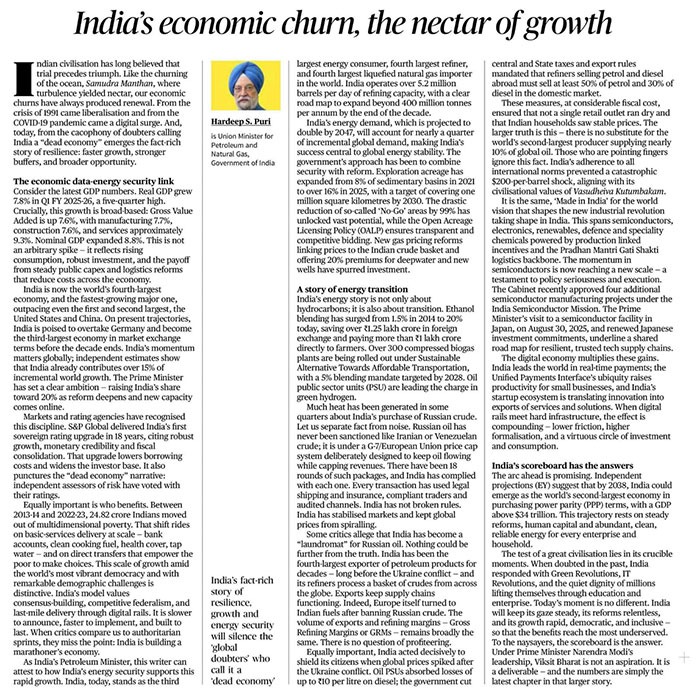
The test of a great civilisation lies in its crucible moments. When doubted in the past, India responded with Green Revolutions, I...